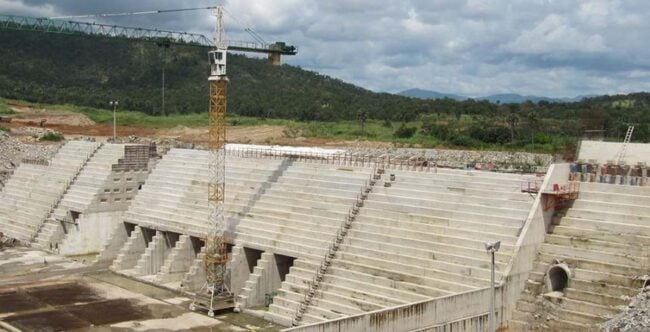BY MARGARET MACJOHNSON
Nigeria faces significant economic challenges, including political instability, weak governance, volatile oil prices and security concerns, which all affect its growth trajectory. In this context, accurate economic data is crucial to guide policy decisions and retain investor confidence and public trust in the government’s economic management.
The state of a country’s economy determines its citizens’ standard of living, and one index that has been used to measure how well or badly an economy is performing is the Gross Domestic Product (GDP).
On the back of the cash scarcity that threatened to halt economic activities towards the end of 2022, the National Bureau of Statistics (NBS) reported that the GDP growth slowed to 2.31% (year-on-year) in the first quarter of 2023, a significant drop from the 3.52% recorded in the fourth quarter of 2022.
Advertisement
This drop was attributed to various factors, including a decline in crude oil production, the policy-induced cash crunch and reduced economic activities typical of the start of a new year. For instance, the country’s crude oil production reduced from 1.8 million barrels per day in the fourth quarter of 2022 to 1.51mbps in the first quarter of 2023.
The cash crunch that followed the Naira redesign policy had cascading effects on the economy, resulting in constrained business activities, job losses and a notable decrease in overall productivity throughout the period.
Interestingly, the NBS reported a GDP growth for the following quarter – the second quarter of 2023 – citing a 2.51% year-on-year increase in real terms, with the agriculture sector recording a growth of 4.42% and the service sector growing by 1.50%. This negates most of the anecdotes that pervaded the media and contradicts research done by SBM Intelligence. This is quite concerning considering the realities that characterised that quarter.
Advertisement
Businesses were affected by the ripple effects of the cash crunch. According to a May report, “Strapped: Impact of the cash scarcity on individuals and businesses”, which focused on the impact of the cash scarcity on individuals and businesses, the agriculture sector suffered depressed spending, affecting farmers’ ability to pay for labour and resulting in reduced production. The cash shortage also affected trade volumes since many transactions in rural areas and the country’s informal sector are cash-based.
Traders resorted to various coping mechanisms such as reducing product values, offering discounts for cash payments, and bartering goods. The report’s findings showed that transportation and feeding became more difficult due to the cash crunch as transportation workers had to use PoS machines to ease payment for their passengers. Food sellers reduced prices and battered their goods to obtain other essentials.
Similar conclusions were made in the April 2023 UN Trade and Development report update published by the United Nations Conference on Trade and Development. The UN said the shortage of cash, triggered by the replacement of the highest denominations of Nigeria’s currency, hobbled the economy, especially the informal sector.
Against this background, one needs to scrutinise the methodology employed by the country’s statistics office in arriving at the 2.51% growth rate for the second quarter. Nigeria’s GDP figure for the second quarter of 2023 has painted an optimistic picture of economic growth, masking unresolved issues such as overdependence on oil revenue, FX unavailability, poor economic policies like the naira redesign, an unaccounted-for informal economy, income inequality, insecurity that affects economic activities, a lack of diversification to mention a few.
Advertisement
The fundamental purpose of data is to equip policymakers with the required insights to comprehend issues, devise effective solutions and monitor their impact. It is important that the data provided by the NBS reflects the reality of Nigerians because it could lead to an erosion of public trust in the agency and a delay in addressing underlying factors affecting the economy.
Foreign investors may also begin to doubt the business environment and withhold investments. The NBS must implement measures that foster transparency by sharing methodologies, data sources and assumptions. Ultimately, accurate and reliable economic statistics are vital for effective governance.
MacJohnson is an analyst at SBM Intelligence
Advertisement
Views expressed by contributors are strictly personal and not of TheCable.
Add a comment






